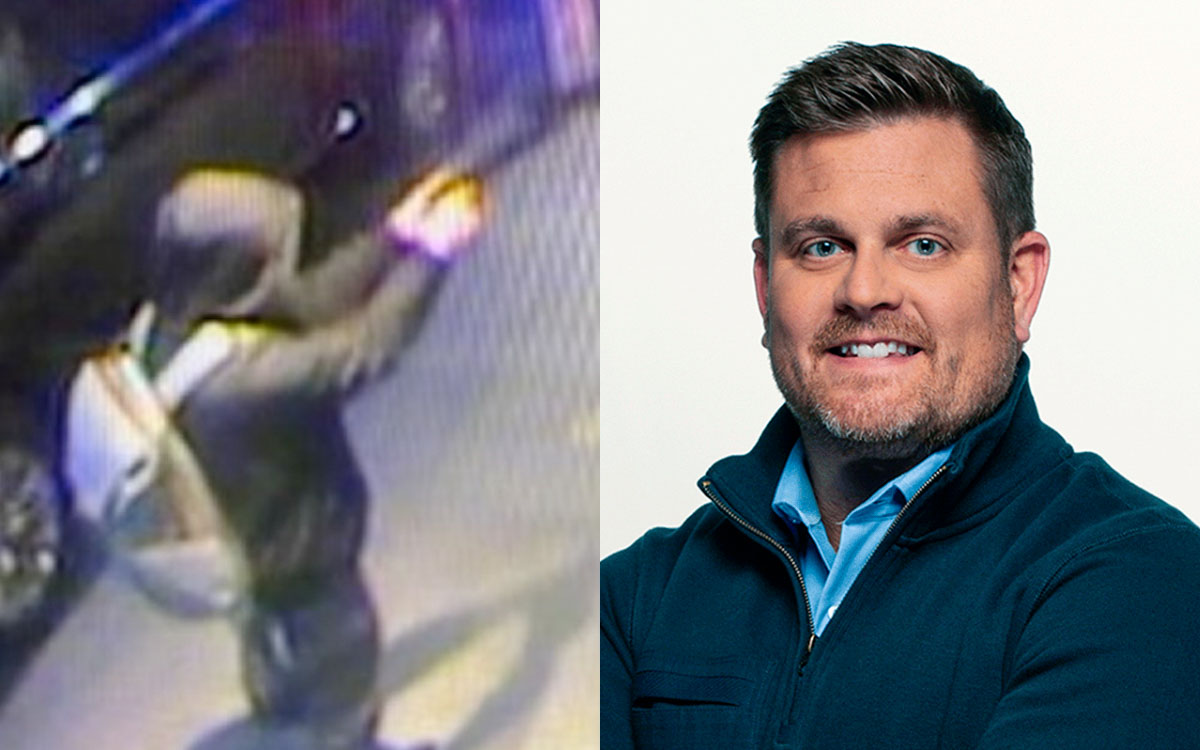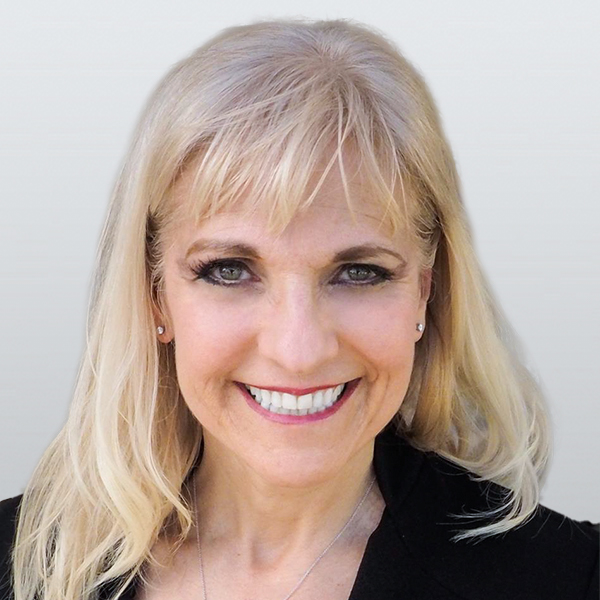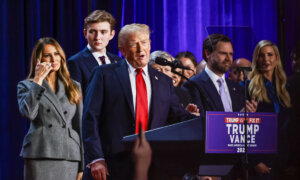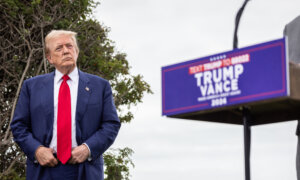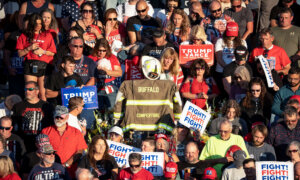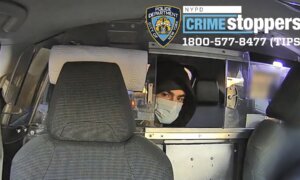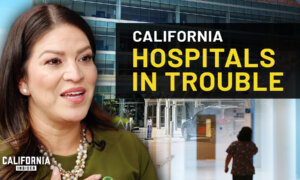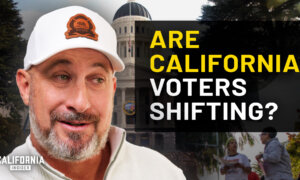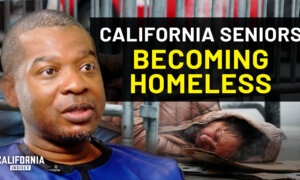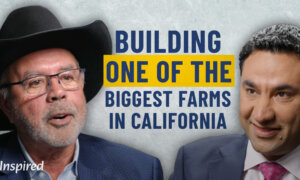Security expert Philip Klein, who previously helped protect Brian Thompson, says he cannot fathom why the UnitedHealthcare CEO was alone and unguarded as he walked along a New York City sidewalk on Dec. 4.
That made Thompson an easier target for a gunman who emerged from the shadows, fatally shot him, and fled on a motorized bicycle. The suspect remained on the loose as of Dec. 6.
Considering Thompson’s prominence at one of the nation’s largest corporations, reports of threats against him, and the fact that UnitedHealthcare employs its own security team, Klein said, “What the [expletive] is this man doing in New York City without, you know, protection?”
UnitedHealthcare, which has not responded to The Epoch Times’ request for comment, was “very attuned towards the safety of their employees,” Klein said, based on his contacts with the company.
That’s why Klein, CEO of Klein Investigations & Consulting, said he was “baffled a little bit” over security officers’ absence when Thompson was gunned down.
The company posted a statement on its website on Dec. 5, saying, in part: “Our priorities are, first and foremost, supporting Brian’s family; ensuring the safety of our employees; and working with law enforcement to bring the perpetrator to justice. We, at UnitedHealth Group, will continue to be there for those who depend upon us for their health care. We ask that everyone respect the family’s privacy as they mourn the loss of their husband, father, brother and friend.”
Klein, a Texas-based personal protection officer for more than 40 years, said he couldn’t recall another time an American CEO was killed in a public setting.
The slaying also was unsettling because it happened hours before a large, joyful holiday gathering—the city’s annual Christmas tree lighting at Rockefeller Center blocks away from the shooting site. Officials reassured people that attendees would be safe under heavy police presence.
While a manhunt for the gunman continued, Klein and a second security expert provided insights about the shooting to The Epoch Times.
The pair described steps they would have taken to protect Thompson. They also analyzed the gunman’s actions based on information released thus far.
And Klein explained why news of the 50-year-old CEO’s slaying hit him in a personal way.
A Lasting Impression
In about 2007—a few years into Thompson’s employment at UnitedHealthcare—an oil company hired Klein’s firm to provide security for Thompson.Thompson, who began working at the health care company in 2004 and ascended to CEO in 2021, was then an “up-and-coming executive,” Klein said.
The future CEO had flown to Dallas for a speaking engagement at the oil company’s invitation.
Klein remembered him as a good-looking young man who seemed “very, very charismatic.”
Thompson was preparing to head home from the event when he turned to Klein, who was heading Thompson’s security detail, and shook his hand.
“And then he said, ‘Mr. Klein ... you be safe out there—you hear me?’” Klein recounted. Klein responded: “Yes, sir, I will.”

Philip Klein, a longtime professional security officer, works at a security detail at the Trump Hotel in New York City in 2018. (Courtesy of Klein Investigations & Consulting)
Thompson’s words meant a lot to Klein.
Among thousands of prominent people Klein has protected, few have shown such regard for him.
“That strikes me as a man with a cause; it strikes me as a man that understands the gravity of his position. ... It strikes me as a man that really has a heart and cares,” Klein said. “I’ll never forget it.”
Many corporate executives’ responsibilities distract them to the point that “they kind of forget” to express gratitude for people who protect them, Klein said.
“They look at you as ‘the help’; they don’t look at you as the guy that put his hand on the Bible and swore to take a bullet for him,” said Klein, who requires his security officers to take such an oath.
Klein said his employees provided security for Thompson three times between 2005 and 2010. In each instance, a company that secured Thompson as a guest speaker had hired Klein’s company to protect him; Klein said UnitedHealthcare is not a client of his.
A Tragic, Shocking End
Many years after he last saw Thompson, Klein learned the circumstances of Thompson’s demise, much of it captured on video via security cameras.“It was very, very shocking,” Klein said.
Just before sunrise on Dec. 4, a Wednesday morning with temperatures in the 30s, Thompson left his Midtown Manhattan hotel. Wearing a suit and no winter coat, he only intended to walk across the street to the Hilton Hotel, where an investors’ conference was set to begin at 8 a.m.
But Thompson never got there. Before he could reach his destination, a gunman stepped out from behind a car and fired several rounds, hitting Thompson in the back and leg.
Leaving the hotel at 6:44 a.m. may have been bad timing for Thompson, Klein said, because many New York police change shifts at about 7 a.m. Thus, while officers are going on- and off-duty, fewer of them are patrolling the streets.
That likely decreased the odds that police would have spotted the gunman preparing to ambush Thompson, Klein said.
The Epoch Times asked the New York Police Department to respond to Klein’s concern about the timing of the shooting but received no reply by publication time.
Billy Ray Hunter of Florida, a former SWAT officer who worked on protective security assignments for more than 20 years, concurred with many of Klein’s observations.
He, too, was unable to recall another time when the CEO of a major U.S. company was assassinated in public.
Hunter said he was surprised to learn no bodyguard was in sight at the time Thompson was shot in the back.
“If I was being paid to watch him, I would have had someone there to escort him at all times ... maybe one person who’s obviously with him and another one to shadow him,” Hunter said. “From a protection standpoint, at least one or two people should escort him—for visibility, if nothing else.”
Would-be attackers who spot a bodyguard may be deterred from carrying out their plans, he said.
Could a security officer have been near Thompson, trailing him outside security camera range? That’s doubtful, Klein said, based on what he has learned from others who work in the personal protection profession.
“They’re not coming out saying [that] his bodyguard missed it; they’re not saying anything like that,” he said.
Protocol for Protection
Klein outlined the steps he would have taken to ensure Thompson’s safe arrival at the conference, which was canceled in the wake of his death.VIPs often avoid staying at the same hotel where they are slated to speak, Klein said, because it’s the only way they can rest. Otherwise, they tend to draw constant attention from event attendees.
In a scenario such as Thompson’s, in which he was simply heading across the street, Klein would have advised a less direct route.
Klein said he “would have walked him out the door, walked him right to the car, put him in the car, closed the door,” and waited for other security guards to follow them.
Then he would quietly drive around the block and bring the protectee into the building through a rear entrance.
“I would also have an advance team in there that would have had undercover agents in front of the hotel, in the lobby of the hotel,” and around metal detectors, Klein said, adding he may have taken additional measures, such as preventing anyone from entering the conference room the night before.

This still image from surveillance video shows the suspect, left, in the killing of UnitedHealthcare CEO Brian Thompson, center, outside a Manhattan hotel where the health insurer was holding an investor conference on Dec. 4, 2024. (AP Photo)
Pro Hitman or Amateur?
As for the gunman, Klein and Hunter agree that he showed some proficiency with firearms—leading to initial speculation that he might have been a professional hitman. For example, the security camera video reveals that his weapon malfunctioned, but the gunman quickly cleared the jammed firearm—three times.The gunman also equipped his firearm with a suppressor, which Klein pointed out is sometimes incorrectly called a “silencer”—it doesn’t conceal the sound of gunfire altogether. However, Klein said the device may have muffled the sound enough to thwart New York’s gunfire-detection system from alerting police.
But in important respects, the gunman deviated from behaviors that would be expected from a professional killer, both experts said. Hunter noted that the shooter could have been an amateur-for-hire.
Hunter pointed out that at least one round hit the victim’s leg, but a professional hitman would likely have aimed only at the victim’s torso or head.
Klein added: “A professional hit, as we study it in our business, is: Somebody walks up very quietly behind you, puts the gun to the back of your head and shoots you a couple times in the back of the head, and keeps walking—the old Mafioso way.”
A true pro would not have fled on an “e-Bike,” a motorized bicycle that requires a card payment and is equipped with a GPS-tracking system, Klein said. That is what police say the suspect in Thompson’s death did.
The gunman also appeared to have made several other mistakes that only an amateur would make, including possibly leaving a cellphone behind as he fled, Hunter said. Police told reporters they were scouring a cellphone for evidence.
In addition, police released photos that show almost the full face of a “person of interest” in the case. A police social media post didn’t say where the photos were taken; The Epoch Times was unable to independently verify reports based on anonymous sources.

The New York City Police Department on Dec. 5, 2024, released photos of a "person of interest" wanted for questioning in the shooting death of UnitedHealthcare CEO Brian Thompson a day earlier. (NYPD News via The Epoch Times)
‘Whodunit?’ And Why?
Police have said they believe Thompson was the victim of a targeted attack, but they haven’t disclosed a possible motive.Hunter said it’s possible that someone was retaliating against Thompson because of a gripe with UnitedHealthcare or with him personally.
But he said he thinks someone exacting revenge would want to look the victim in the eyes before killing him instead of shooting him in the back.
Whatever the motive, the shooter left enough clues that Hunter said he thinks the case will be solved with an arrest fairly soon.
“It’s a real big ‘whodunit,’ and why,” Hunter said. “But I don’t think it’s going to be a mystery real long.”
Reuters and The Associated Press contributed to this story.
